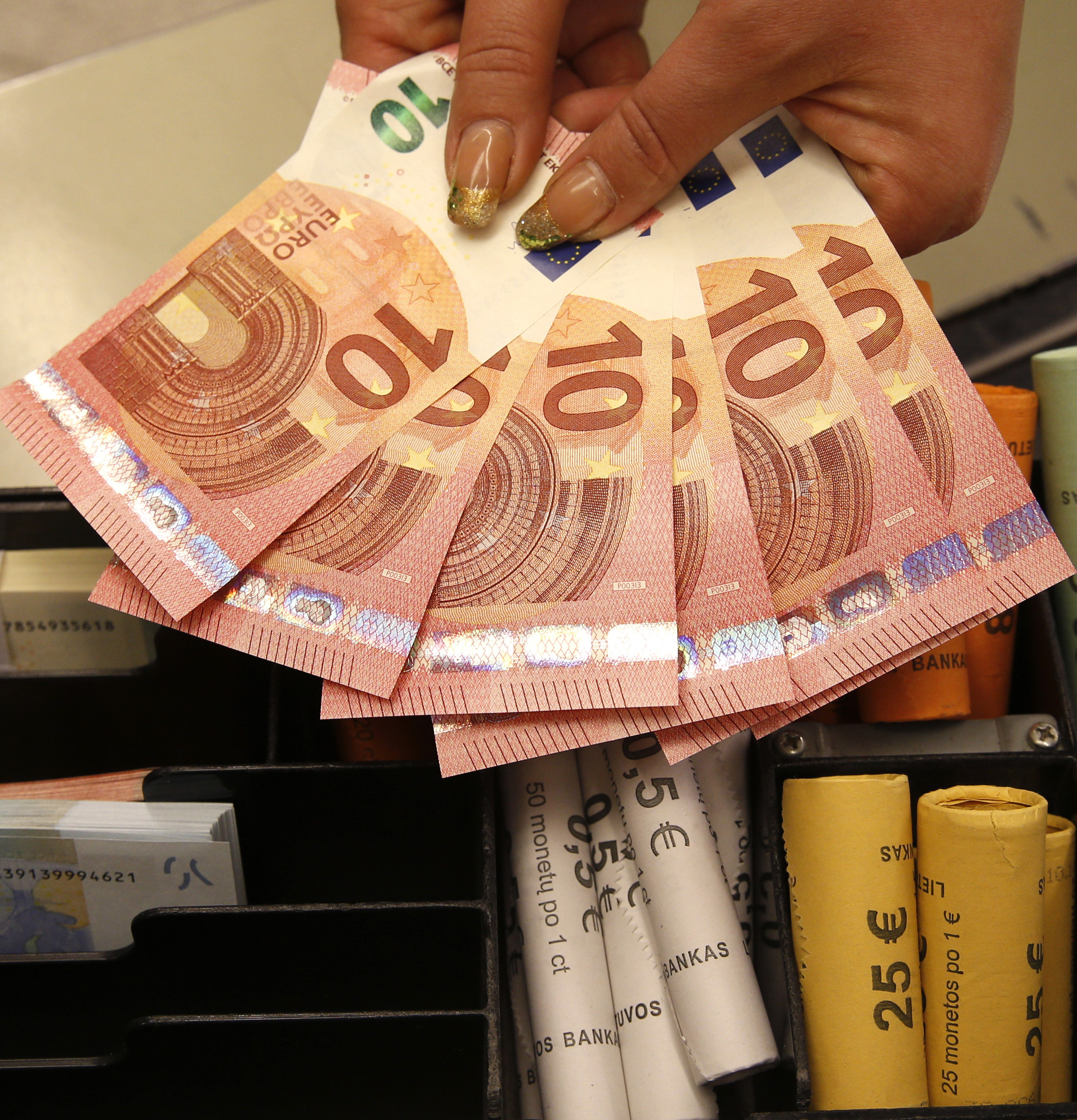Euro sinks to nearly 5-year low after Draghi hints at stimulus
The euro slid to a 4-1/2 year dollar low Friday after European Central Bank President Mario Draghi indicated the bank could soon back a government bond-buying program to deal with alarmingly low inflation across the 19-nation eurozone. The currency’s latest foray toward $1.20 was triggered by a warning from Draghi that the bank is now more likely to fail in its ambition to keep prices stable than it was just six months ago. The reaction was mostly evident in the currency markets, where the euro came close to falling below the $1.20 mark for the first time since June 2010 when Europe was reeling from Greece’s first bailout and mounting speculation that other euro members were in acute financial difficulties. Having fallen to its new multi-year low of $1.2005, the euro steadied somewhat Friday, trading 0.5 percent lower on the day at $1.2022.
We have to avoid too-high inflation and we have to avoid too-low inflation as well. We are making technical preparations to alter the size, pace and composition of our measures in early 2015.
European Central Bank President Mario Draghi to the German financial daily Handelsblatt
Inflation in what is now the 19-country eurozone — Lithuania adopted the euro on Thursday — stands at 0.3 percent, far below the ECB’s annual target of keeping general price rises just below 2 percent. The worry is that too-low inflation turns into an outright drop in prices. Although that sounds good in principle, deflation can choke the life out of an economy if consumers put off purchases in the hope of future bargains and businesses fail to invest and innovate. Deflation can prove difficult to reverse, as evidenced by Japan’s economic stagnation over the past two decades. Proponents of quantitative easing say the policy can help shore up a recovery and support prices by reducing the borrowing costs for businesses, households and governments. The associated fall in the currency could also help boost growth by making exports cheaper and stoke some upward inflationary pressure by making imports more expensive.

Business